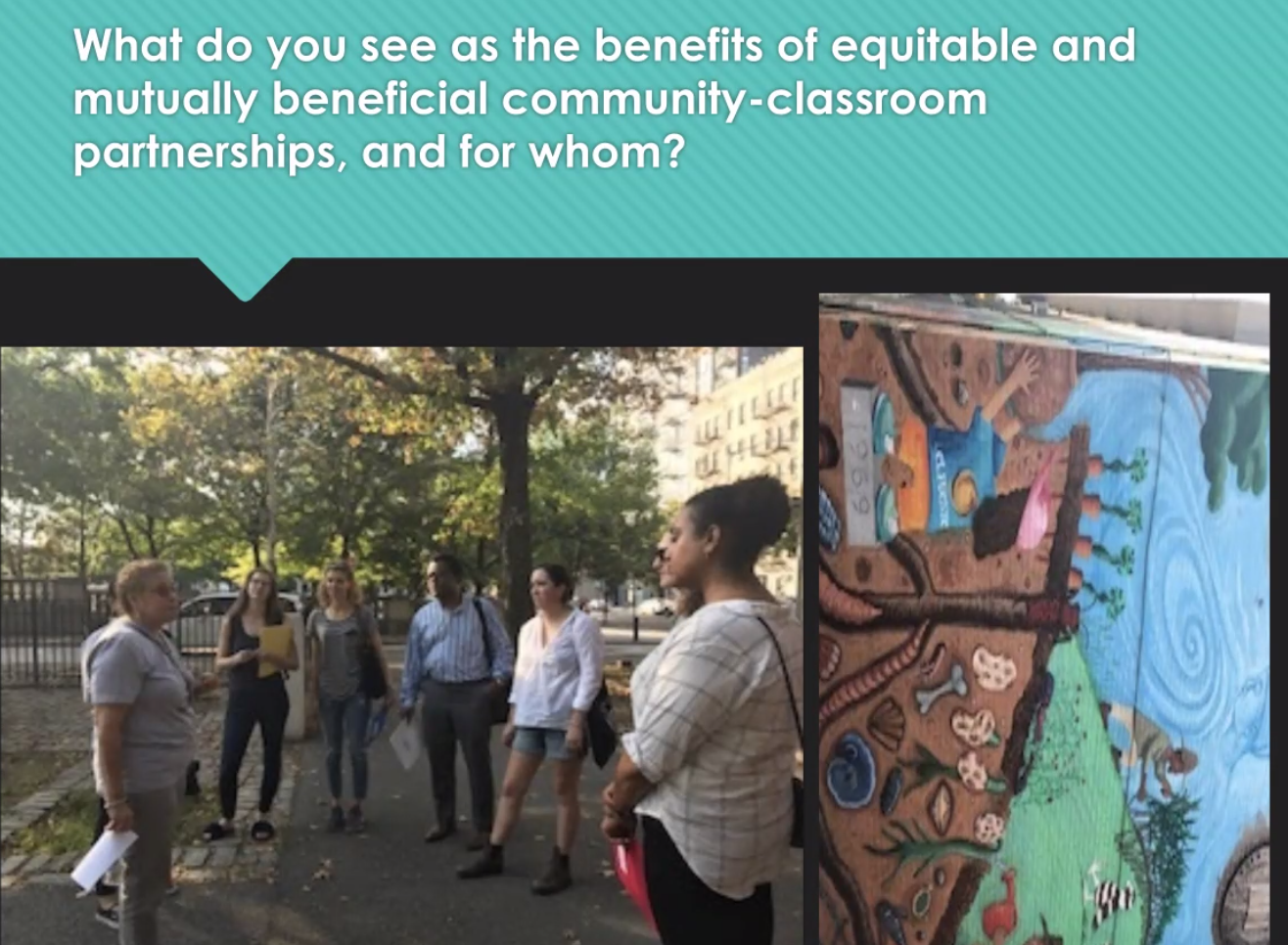This presentation was recorded as part of the Community Engagement 101: Peer Exchange Session in May 2020. Faculty were prompted to share about a previously-taught course and reflect on lessons learned, specifically addressing the challenges and opportunities of developing equitable and mutually beneficial collaborations and of effectively preparing students for collaboration.
Course Description:
This course will focus on a critical exploration of the origins of and solutions to environmental racism and injustice. The class includes examination of the evolution of the Environmental Justice Movement, the political economy of environmental inequalities, environmental history and practices, institutionalized racism and urban development patterns that contribute to the manifestation of unjust environmental conditions in low income and communities of color in the United States. The course also considers the critical question: What can be done to correct these inequalities? Emphasis will be placed on the public policy, urban planning and community based solutions in practice in Environmental Justice Communities. We will use local case studies, toxic tours and guest lectures to enrich class readings and discussions. Fulfills the Making a Difference Requirement for the Environmental Policy and Sustainability Management Program. This course counts toward the Ethnicity and Race Minor.
If you are interested in reviewing the syllabus for this class, please contact Ana Baptista directly via email at baptista@newschool.edu
Recommended References:
- Jemez Principles for Democratic Organizing
- Memorandum of Understanding for Mutually Beneficial Research, produced by the Engagement Lab at Emerson College
- The Critical Participatory Action Research (PAR) Institutes, by the Public Science Project
- Developing a Memorandum of Understanding, by the Local Initiatives Support Corporation
- Sample MoU: Addressing Environmental Health Risks through Community Action Research and Local Knowledge
Note: Community Engagement 101 is a proposed introductory curriculum for faculty and TA/Teaching Fellow graduate students across The New School (TNS) who incorporate external engagement or partnership as a part of their syllabus. For more information, visit our Collaboratory In-Depth Profile here.

